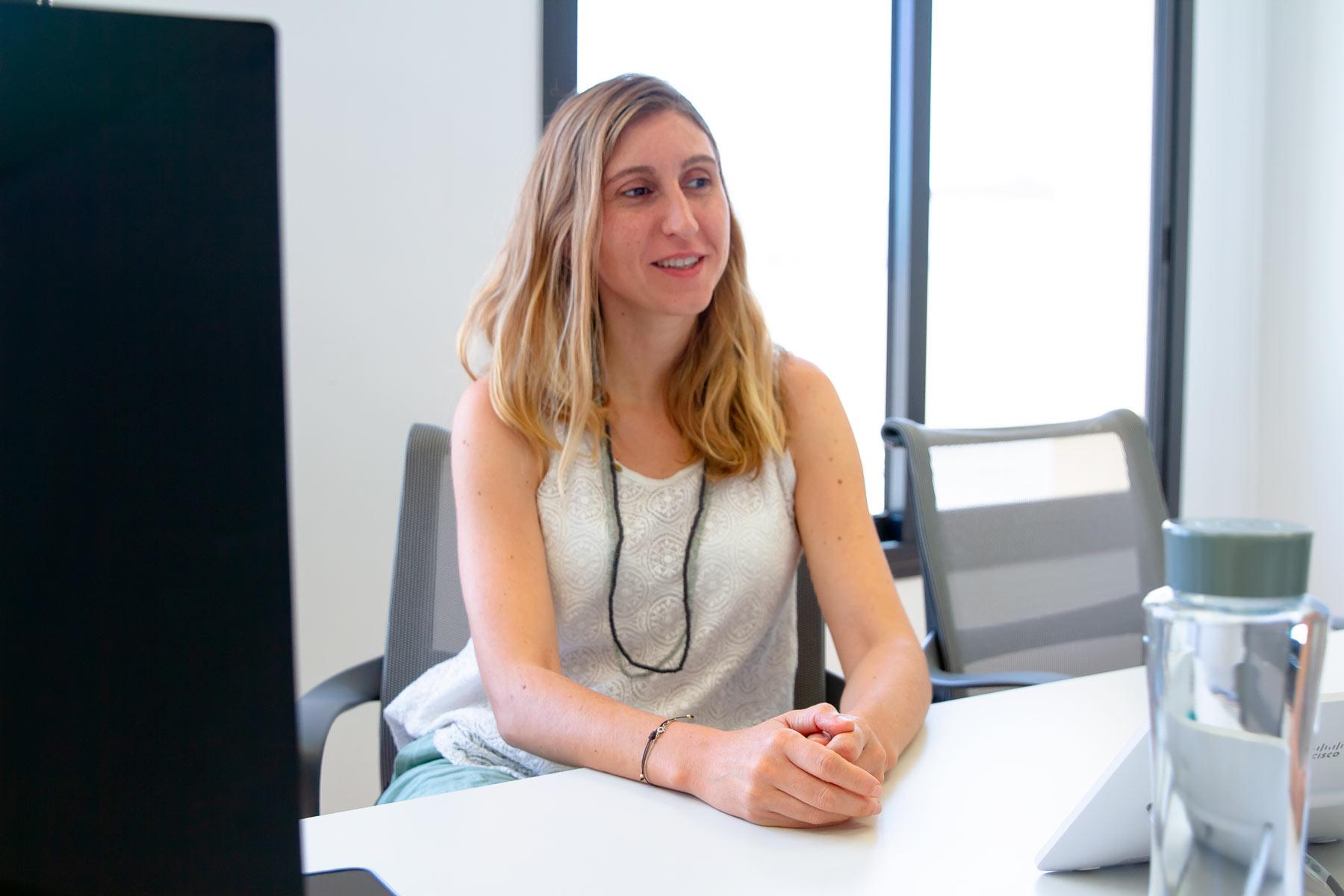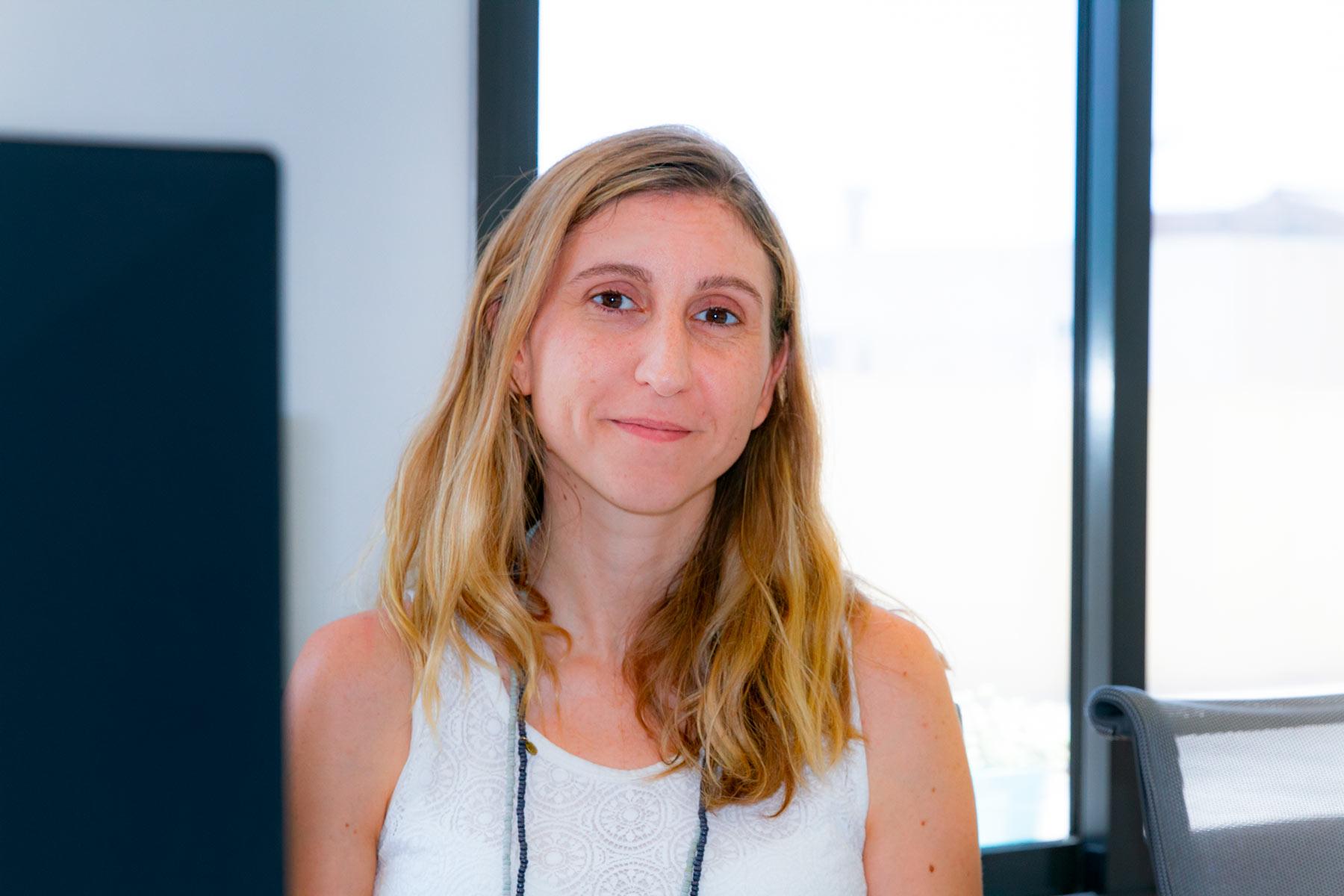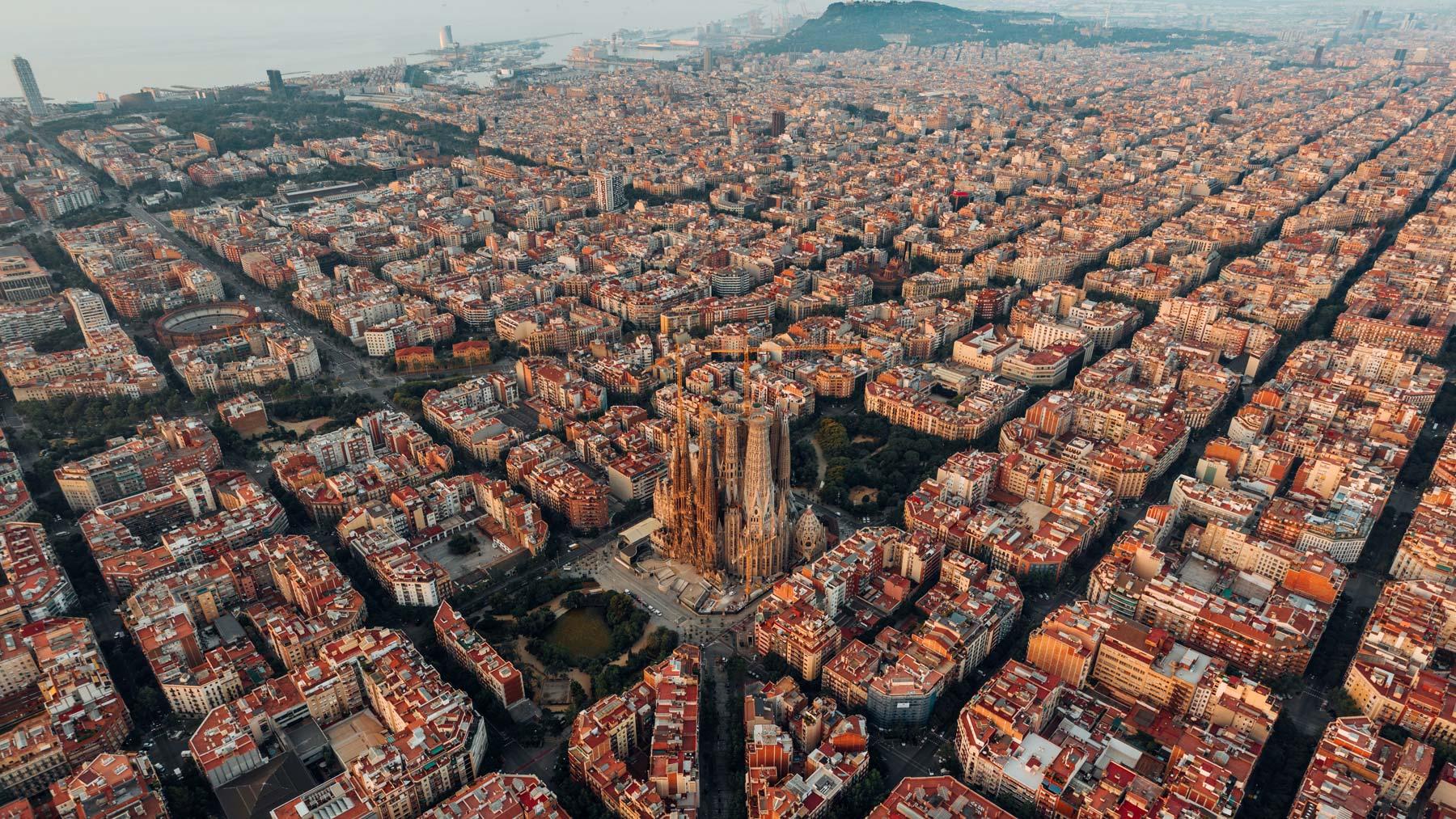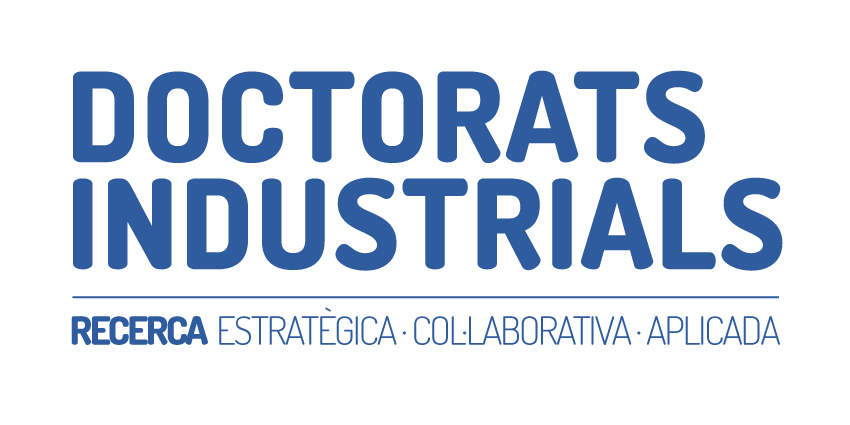
She holds a degree in Telecommunications Engineering from the Polytechnic University of Catalonia (UPC) and an electronic engineering degree from the University of Las Palmas de Gran Canaria (ULPGC). He did his PhD at UPC-MIT and has collaborated with NASA, the Massachusetts Institute of Technology (MIT) in Boston and Google in the field of artificial intelligence applied to satellites. Very committed to education and STEM, she was co-founder of the UPC's nanosatellite laboratory, where she has taught since 2016. She is also often involved in initiatives such as Women in STEM in secondary and university schools.
He has directed four industrial doctorates with Vilynx, with offices in Barcelona, New York and California, and has managed to establish this program for the first time at Apple. She has received many awards such as the Young Entrepreneur Award from the Association of Young Entrepreneurs of Catalonia (Aijec), has been awarded by Thales, GMV and Google and has recently been distinguished with the 2022 Princess of Girona Business Foundation Award.
First of all, congratulations on the 2022 Princess of Girona Business Foundation Award. The media talk about you as a worldwide reference in the field of science and technology. What motivated you to become an engineer?
I was one of those girls who were very clear from the beginning that mathematics was my field: mathematics, engineering, technology and mechanics interested me a lot. What I wasn't sure was what engineering, but I knew I was going to do it, for sure. Then I ended up in telecommunications because there was a bit of everything: some electronics, programming, signal processing and antenna technology. All these things.
When you studied telecommunications there weren't many girls, I imagine.
There were very few of them. In my time there must have been three or four girls in my class, from a promotion of one hundred. There are two types of girls. On the one hand, there are those girls like me, who are very clear that they don't care about the stigma of frisky; but there are many girls, the bulk of the girls, who might do engineering; however, they are not so clear about this vocation to think "I don't care about everything, technology is what I want to do, I will do whatever happens". They feel like there's a bit of stigma that, because you're a girl and do engineering or tech, you have to be a fret, hacker or a rarity.
It's a very silly prejudice. However, it is very present and, on the other hand, the boys when they do not know what to do all go to engineering: because it has exits, because it will be good, because yes, etc. And that's a little bit of the grassroots problem we have: there are the girls who like me are very clear about it and we end up with it, but there are many of us who lose along the way that could contribute a lot.
«There is a feeling that there is a certain stigma that, because you are a girl and do engineering or technology you have to be a geek, hacker or rare, but that is not the case»
You just have to see how far you've come. How did you experience the Princess of Girona Business Foundation Award 2022? It is a great recognition of your career.
It is a very important recognition and I receive it with great humility and supercontent. Because when you look at the awards from previous years or the women awarded this year, you are very proud to be awarded. I think it's a very good recognition of all the work we've done for the entire Vilynx team, which has been a lot for eight or nine years. We started very early, he believed a lot in this idea and people worked hard to move it forward. For me it's an acknowledgement for everyone.
What's behind vilynx's name?
The name Vilynx is a bit odd, and comes from a well-known expression: "have a lynx view". It is a name composed of two words: "wine" for sight and "lynx" for the animal. The idea is that if you have a lynx view, you can understand the content much better or see better what is in the content.
Your PhD was about artificial intelligence. Do you think the citizen is aware of its usefulness?
I think one of the good things about artificial intelligence is that it can go unnoticed. In some way they humanize the interfaces of machines. A very clear example is car navigation, which many people may not use, but since it is a very simple voice system, everyone ends up using it. You address your navigation system as if it were an artificial person; Artificial intelligence allows us things like that. Therefore, I think it is true that many people are not aware of the uses of artificial intelligence at the moment.
Somehow I think it has this positive character because it naturalizes interfaces, but without it being noticed. And I think that's very good, it's a beautiful thing that artificial intelligence has. It is also necessary to keep in mind the entire issue of accessibility. There are many uses of artificial intelligence in this field that are also very important. In short, it allows technology to be accessible to more people, and to more diverse people.
«Somehow, artificial intelligence humanizes the interfaces of machines»

Has the research you did in artificial intelligence during your PhD become obsolete?
The speed with which artificial intelligence systems become obsolete is very large, because we have a lot of people working at the same time and that is a very good thing. Perhaps saying it's obsolete would be like saying it's no longer useless. It's always moving forward, it's a fact.
While doing a PhD or an industrial doctorate, you evolve in a line of knowledge that humanity has, but it is also important the evolution you make as a person and the resources or methodologies you learn, which you will continue to use for the rest of your life.
Let's talk about our home, now. Do you consider Barcelona a benchmark in the field of artificial intelligence?
Yes, I think Barcelona is a benchmark in the field of artificial intelligence, and it is for many things. Historically, we have had a very good background here in communications engineering, which is the basis of many artificial intelligence systems. The UPC and UPF have renowned experts in artificial intelligence, and we are seeing the creation of a knowledge centre around the city. This can be seen both in the migration of talent returning to Barcelona and in coming to Barcelona for the first time to work in this field. We also see it in the number of startups we have that use different AI systems.
We have a very big talent pole thanks to our entire university network, which is very powerful. At the same time, we are at a very nice point in the ecosystem, where there are many startups and new projects in artificial intelligence that are very successful.
«Barcelona has a very large talent pole in artificial intelligence thanks to the powerful university network we have»

Awards such as the Princess of Girona honour emerging young talent. How important is this talent in the industrial doctorate projects you have led?
I think that's the most crucial. It is obvious that without talent absolutely nothing can be done. At Vilynx, one of the things we did was to have the first offices within the UPC campus, to attract talent in the easiest way possible and have direct access to them. There is no innovation without talent, and not only for the innovation part, but also for the execution part. Vilynx was a project made by and for a team.
Do you think industrial doctorates are a good instrument for training this talent?
It's great, because as a company you always aspire to attract the best possible talent, and retain it in some way: that it's so good that it doesn't want to leave. But when you have very powerful talent in academia, it is very normal for these people to want to follow their vocation at higher levels. They get to work in a start-up and after a few years think that maybe the progress of their career involves doing a PhD. Therefore, the opportunity offered by industrial doctorates is to allow them to work in companies and at the same time afford to have this recognition at doctoral level, and continue advancing in their academic career. I think it is a luxury to have this program, and it is wonderful to retain talent, but also for workers who want to continue their career without deciding whether to stay in the industry or go to academia.
Jorge Wagensberg said that «innovation requires three things: having a good idea, realising that innovation is good and convincing others, and it is almost never the same person who achieves all three». After leading four industrial doctorate projects, do you agree with this statement?
Totally agree. You don't just have to convince, then you have to execute the idea. In all cases, you will surely need a group of people with different abilities and strengths. Absolutely agree with Wagensberg's quote. I believe that everything that is done in innovation processes is never a matter for one; When we really see excellence and see results is when we have teams focused on that innovation. We are talking about an industrial doctorate in a context: a research team, a university and business team, support, etc. It is here that we see that the breeding ground is created for ideas to come out and then also execute. It's never a one-person thing.
It's a paradigm shift. We have overcome the era of inventors, now to innovate you have to collaborate.
This happens for two reasons. The first is that the complexity of the systems has increased enormously. Now it is impossible to find someone who understands a whole complex system. The second reason, which is also important, is specialization. Each subsystem is part of a larger and increasingly specialized system. Therefore, if you want to innovate, you need very specialized talent.
What do the four projects you have led have in common?
They are different projects. We have them on natural language thinking, computer vision and we also have automatic speech recognition projects. They are different from each other, although they are also parts of a complex system, as we said before.
Projects to automatically analyze, index and tag video content. What does this technology consist of?
The fundamental technology we were doing at Vilynx was autonomous learning systems. When we started, most research groups and companies were doing supervised learning. What does that mean? Basically, you create a dataset and tell it, for example, that you want to recognize cats and dogs; The artificial intelligence system then takes images from the dataset and then says it's a cat or a dog. But when an image of a zebra arrives, which is neither a cat nor a dog, the system does not know what to do. What we were doing at Vilynx was unsupervised autonomous learning: the zebra is neither, but it seems to also have four legs, it also has hair and has some characteristics that are similar. Artificial intelligence won't name him because he doesn't know it; Even so, he is able to distinguish the zebra from a cat and a dog he already knows.
Can all videos on the Internet be indexed?
They can be indexed, of course! That's precisely what we intended for Vilynx.
And in the future, how do you think the information will be organized?
We always start from a duality: humans work with unstructured data and computers work with structured data. There are more and more artificial intelligence systems that help structure data to resolve doubts, to be able to search for things at home, etc. But these systems are also dedicated to normalizing structured data again so that the interface is as human as possible.
«More and more artificial intelligence systems are helping to structure data to solve doubts»
Will we always have this duality between humans and machines?
That's because humans communicate in an unstructured way, and we don't have any software that literally works like that yet. That is, first we put it in the system as values and variables and then we translate it back into human language.
How do machines learn?
When we talk about learning, I think it is important to make visible that what we are trying to do is to get machines to have naturalized behaviors. What allows us to learn in depth? Well, do precisely the translation that we said before between structured and unstructured language.
What has the experience been like with industrial doctorates?
I am very much a defender of these projects, and I am delighted with the Industrial Doctorates Programme, because for Vilynx it was a turning point. We were at a point where we were lucky enough to have a very leading team. But we also saw that, in order for the team to continue to be happy doing what it did, we needed to offer a way out to be able to do a PhD. It's been very enriching for us. It has helped us a lot to retain talent, and also to ensure that this talent was at ease and could continue its academic training. They have also created a very beautiful dynamic of innovation and research. Although the basis of companies such as Vilynx is R&D&I, industrial doctorate projects have reinforced this basis, they help precisely to establish a commitment to this type of research. It's been very enriching for everyone.

